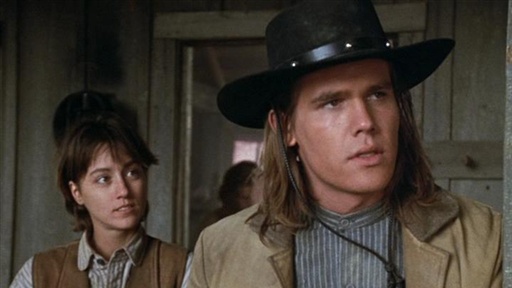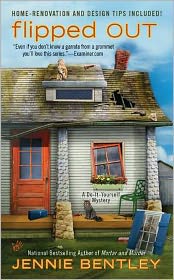The path a writer takes seems fraught with potholes, hurdles, and sometimes steep drops off sheer cliffs. It’s peculiar, though. The things I view as “mistakes” aren’t always seen that way by others. Sometimes it’s a matter of perspective.
My agent, Marian Young, and I have discussed this, in regard to my writing career, at different points in time. We’ve worked together for the past 20 years, and she’s seen me through the joys of a book auction and movie option to the depths of depression when a phone call comes in with “your numbers aren’t great.” Trust me, in both instances, there has been much, much discussion, high-fiving, second guessing, and sometimes whining (on my part).
 |
| Marian Young |
Marian has the experience of multiple authors’ careers to draw from. I have only my own, so sometimes my leaps of logic are not only startling, but downright wrong. Still, I do know there is one thing I would change if I could. I would learn about the business of publishing right from the get-go.
I’ve worked with publishers, big and small. I’ve been fortunate that my career has offered me this opportunity—to experience “bringing forth” a book with all types of publishers.
I read all kinds of books. My first love was short fiction, that cruel mistress that offers such exquisite pleasure and no chance of making a living for most writers. But I also love a chilling scary story, an intricately plotted mystery, an adventure, a gothic. I just love to read. I’m not picky about genre, but I am demanding about quality of writing. This attitude toward varied reading has bled into my writing, which is why I’ve had a chance to work with a lot of publishers.
But while I worked hard to be well read, I did not focus on the business of publishing and what came after the book was sold and out on store shelves. When SUMMER OF THE REDEEMERS came out from Dutton in 1994, I was totally unprepared to tour and “sell” my book. I suffered under the illusion that my job was done. I’d written the best book I could write, and now I had only to write the next book and wait for the royalties to roll in. Right.
Dutton sent me on book tour, and I tried hard. I was extremely shy, and I had no idea what the bookstore’s responsibilities were, nor what my own were. I had assumed there was some magic involved—that once I was published, the reading world would know all about my book. In my head, the process wasn’t about me, it was about the story I’d worked so hard to tell.
But that isn’t really how marketing a book works. It was agony for me to find myself in a strange city, going to a bookstore where everyone was nice, but I was just another in a long list of writers who had bled heart’s blood onto the page and tromped through the store trying to find an audience.
There were wonderful times and people. There is nothing more exhilarating than showing up in a store in a strange city where the staff has read my book and genuinely loved it. Life doesn’t get a lot better than that. But it was hard on me. I wanted to write—I loved my solitary time living in my imaginary world. Going public went against my nature. Though I do love to laugh and engage with readers, I had to learn how to relax and simply let it happen.
So when I finished book tour, I went home and started work on the second book, TOUCHED. I didn’t want to do TV interviews. I wanted to write, to tell the story that compelled me to do so. My job, as I saw it, had little to do with interviews and public appearances and airplanes.
What I didn’t comprehend was that promoting and selling the book had become part of the writer’s job. My job. Of course it has always been part of a writer’s job, but when Dickens traveled to America to promote his books, it sounded like an adventure. When I traveled to strange cities, it was like prying an oyster out of its shell.
Had I understood the business of publishing and the relationship between author-publisher-bookseller a bit better, I would have more fully understood my role. Perhaps book tour would have been just as difficult, but I think not. I was a photojournalist for many years, and I never let my shyness stop me from getting a good picture. Because it was my job. I knew and understood what I was supposed to do, and I did whatever it took to get that shot.
I suspect that many writers know this. They look beyond the blank page and the process—sometimes joyful but mostly challenging—of filling that page with words that tell a story. I had to learn to do that by trial and error. I approached it by feel, rather than by logic or research. Because it was difficult for me and felt uncomfortable, I didn’t look at it head on, but rather with a shaded glance here and there.
Today, I really enjoy book signings and speaking engagements. I like writers conferences and giving talks and being on panels. Teaching has helped me overcome my shyness, and taking a breath and talking with readers has allowed me to see that the love of books we share overshadows everything else. Readers, booksellers, and writers love the written word and story. That gives us ample common ground so that we aren’t really strangers, just folks who haven’t met face to face. Yet.
I wish I had understood this sooner. But as they say (the all-wise “they”) things happen in the time they’re supposed to happen.
________________________________________________A native of Mississippi, Carolyn Haines lives in Alabama on a farm with her dogs, horses, & cats. Bones of a Feather, the 11th book in her Sarah Booth Delaney series, is now available. Sign up for Carolyn Haines' Newsletter & feel free to visit her Website, along with her Facebook, Twitter, & Fan Page.

















